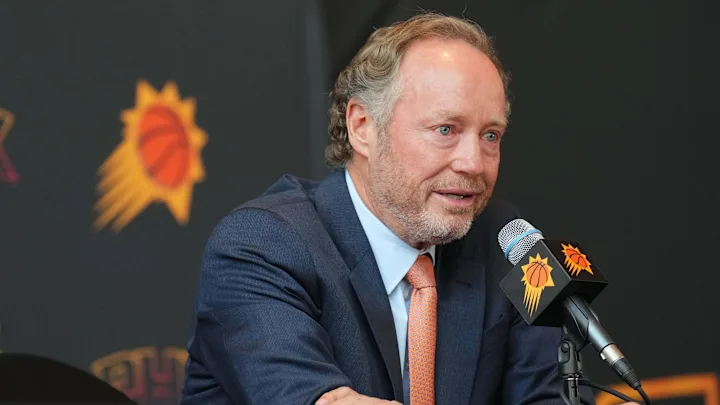The Phoenix Suns are now dealing with rising internal tensions, which have pushed the team’s leadership dynamics into sharp view. One major source of friction has been the strained relationship between Head Coach Mike Budenholzer and centre Jusuf Nurkic. Nurkic, who has not played a game since January 7, disclosed that he and Coach Budenholzer have not interacted in two months, claiming, “We don’t have a relationship.” This lack of communication resulted in Nurkic’s benching and subsequent trade to the Charlotte Hornets on February 6.
The animosity between Nurkic and Budenholzer reflects bigger team problems. Reports have surfaced depicting the Suns’ locker room environment as “toxic,” with internal strife harming team cohesion. These concerns have been worsened by trade rumours regarding important players such as Kevin Durant, which have added to the roster’s discomfort.
During these challenges, the team’s leadership positions have come under criticism. Analysts and former players have questioned the Suns’ leadership system, pointing out the necessity for more assertive mentoring from elite players. Former NBA player Kendrick Perkins especially criticised Kevin Durant’s leadership, arguing that he should be more vocal and influential in steering the team through hardship.
Durant has responded to these criticisms by defending his leadership style, emphasising his devotion to setting a good example and his dedication to the team’s success. He has rejected external criticism, instead focussing on creating a positive and productive team environment.
To stabilise the organisation, the Suns front management must now address these internal challenges. Decisive action may be required to resolve issues and create a more cohesive leadership framework. The Suns will face significant obstacles in the coming weeks as they strive to have a successful season.

